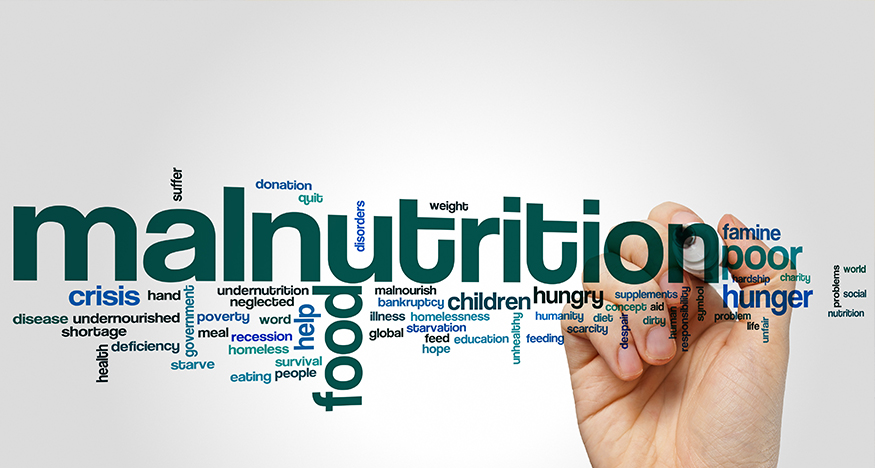Malnutrition is a condition that has impacts that transcend health. While the physical consequences of malnutrition are well-documented, the psychological and emotional impacts are often overlooked. It has severe psychological and emotional impacts that go beyond childhood and stay for the duration of a lifetime. Malnutrition is one of the most complex problems among millions of children with severe consequences for physical health, cognitive development, and overall well-being.
Here are some profound effects of malnutrition on a child’s mental health and emotional well-being.
Impaired Cognitive Development
Proper nutrition is crucial for the growth and development of the brain, and when children lack essential nutrients, their cognitive abilities suffer. Malnourished children experience difficulties with memory, attention, problem-solving, and language development. These cognitive deficits can have long-term consequences, impacting their academic performance and future prospects.
Emotional Distress
Child malnutrition can cause emotional distress and behavioral problems. When children experience hunger and malnourishment, it creates a constant state of stress and anxiety. They may become irritable, and restless, exhibiting signs of emotional instability. Malnourished children may also display symptoms of depression, such as social withdrawal, decreased interest in activities, and a general sense of sadness. These emotional disturbances can further hamper their overall well-being and hinder healthy emotional development.
Increased Vulnerability to Mental Health Disorders
Children who have experienced malnutrition are at a higher risk of developing mental health disorders later in life. Malnutrition can disrupt the delicate balance of brain chemistry, leading to an increased susceptibility to conditions like anxiety disorders, depression, and even schizophrenia. The long-term psychological consequences of malnutrition extend far beyond the immediate physical effects and can have a lasting impact on a child’s mental health.
Poor Self-esteem and Body Image Issues
Malnourished children often suffer from poor self-esteem and body image issues. The physical consequences of malnutrition, such as stunted growth, emaciation, and skeletal abnormalities, can contribute to feelings of inadequacy and a negative self-perception. These children may compare themselves to their well-nourished peers and feel a sense of inferiority, leading to a distorted body image and low self-worth. Over time, this can result in a negative cycle of self-doubt and self-criticism, affecting their overall confidence and social interactions.
Social and Interpersonal Challenges
Childhood malnutrition can also impact a child’s social and interpersonal skills. Malnourished children may struggle with social integration and forming healthy relationships with peers. They may face stigmatization and discrimination due to their physical appearance or perceived cognitive limitations. As a result, they may experience social isolation, which further exacerbates their emotional distress and hampers their social development.
Long-term Effects on Adult Life
The psychological and emotional impacts of child malnutrition can persist into adulthood. Adults who experienced malnutrition as children may struggle with mental health issues, low self-esteem, and difficulties in establishing stable relationships and pursuing fulfilling careers. The consequences of childhood malnutrition extend far beyond the immediate period of malnourishment, shaping the trajectory of an individual’s life and affecting their overall well-being.
Addressing the psychological and emotional impacts of child malnutrition requires a holistic approach. Alongside providing access to nutritious food, interventions should include psychosocial support and mental health services. Training caregivers and healthcare providers on the importance of emotional well-being and early detection of psychological distress can help identify and address the needs of malnourished children. Furthermore, community-based programs that promote social integration and provide safe spaces for play and interaction can mitigate the social impacts of malnutrition.
What Can Help
- Early Detection and Screening
- Nutritional Rehabilitation Programs
- Psychosocial Support
- Education and Awareness
- Community Engagement and Empowerment
Child malnutrition not only has severe physical consequences but also deeply affects a child’s psychological and emotional well-being. Impaired cognitive development, emotional distress, increased vulnerability to mental health disorders, poor self-esteem, social challenges, and long-term effects on adult life are some of the profound impacts of child malnutrition. By recognizing and addressing these impacts, we can work towards comprehensive solutions that prioritize the holistic well-being of malnourished children, enabling them to thrive and reach their full potential.

